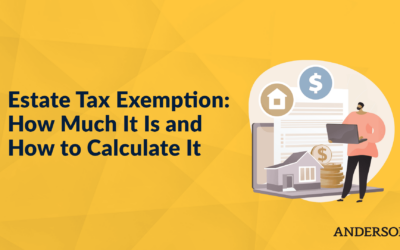Updated September 26, 2021
Indexed universal life insurance is a type of whole life insurance with a cash value that increases over time. As the name implies, its value is tied to a market index.
Indexed Universal Life Insurance Pros and Cons:
PROS
- Flexibility
- Higher cash payout
- Tax-free capital gains
- Peace of mind
CONS
- Risk
- Increases with age
- Return caps
- Additional fees and costs
Before discussing indexed universal life insurance, we need to distinguish it from term life insurance.
Term life insurance is probably more common and better understood, but more limited in its claim payments. It also can’t be used as a tool for cash accumulation. Term life insurance provides life insurance only for a set period of time. After the period of time is over, the policyholder will need to seek a new life insurance policy, either through the same company or a different one.
Moreover, all the money you put into a term life insurance policy is gone. Wouldn’t it be great if the premiums and payments you made toward a life insurance policy built-up cash value? It would be available for you and your family to enjoy, even without death or incapacitation.
That’s where universal life insurance comes in.
What is Indexed Universal Life Insurance?
In order to understand indexed universal life insurance, it helps to understand whole life insurance and (non-indexed) universal life insurance.
Whole life insurance covers the insured for the duration of their life and pays a death benefit. Payments made by the policyholder in excess of the premium are put into a savings portion of the policy, which increases in cash value over time. The cash value of whole life insurance is not tied into any type of market index.
Universal life insurance also covers the policyholder for the duration of their life and pays a guaranteed death benefit. It also has a savings element. It’s different because the premiums and benefits are adjustable. Indexed universal life insurance has the additional difference of its cash value being tied to a market index, like the S&P 500 or Dow Jones Industrial Average. The cash is not actually invested in the stock market, but the index determines the interest crediting rate on its cash value.
You can buy an indexed universal life insurance policy through the same types of insurance companies that sell regular term life insurance to consumers.
An indexed universal life insurance policy (also referred to as an IUL product or IUL insurance) can also be a great way to plan for the future, and not just because it pays a death benefit. Many individuals can use their policy as a convenient way to save money that grows at a faster rate than it would in a savings account or CD. They can also take loans out against the cash value of their portfolio, and if worse comes to worst and those loans never get repaid, they will simply be deducted from the death benefit. In other words, an indexed universal life insurance policy can also provide financial security later in life.
Indexed Universal Life Insurance Pros
Flexibility
Indexed universal life insurance is a type of universal life insurance. This means it carries the same flexibility in terms of adjusting premiums and death benefits. If you need less coverage or need to reduce your periodic contributions, you can adjust your policy.
There is also flexibility in terms of its accumulated cash value in terms of withdrawals. A retirement plan, like a Roth 401k or IRA, carries certain penalties for withdrawals made before a certain age. By contrast, the cash value accumulation of an IUL insurance policy can serve as collateral, against which the policyholder can take out a policy loan.
This means that they won’t be penalized for making withdrawals before retirement. Imagine the type of financial flexibility this offers in terms of meeting large goals or big surprises. This flexibility alone is why many financial professionals tout the benefits of permanent life insurance that also doubles as a cash value account, and is even more beneficial when its value is tied to a stock market index.
Higher Cash Payout
Because the cash value of an indexed universal life insurance policy is tied to a market of publicly traded securities, it can grow significantly more than other types of financial products, even insurance products with a savings component. Moreover, an indexed universal life insurance policy will also often have a crediting floor of less than one percent, which means that if the market index it’s tied to performs poorly, policyholders will not experience a negative crediting rate, and their policy will not go below its established cash value, even if the market sees negative returns.
That said, investing in the policy’s cash value over a mutual fund isn’t a bad piece of investment advice!
Tax-free Capital Gains
Since insurance premiums are paid with after-tax dollars (unlike contributions to a Roth IRA), the indexed universal life insurance policy has some great tax advantages over other types of savings vehicles and insurance policies.
The death benefit for beneficiaries is tax-free. Partial and even full withdrawals are tax-free. Loans taken out against the cash value of the policy are tax-free as well. Many individuals will use an indexed universal life insurance policy as a means for maintaining financial independence because of its tax advantages and Roth IRA limitations.
Peace of Mind
Perhaps one of the greatest benefits of an indexed universal life insurance policy is the peace of mind it can offer policyholders. The policy may have riders—certain provisions—such as guaranteed premiums and death benefits. Even better, it may contain riders around payouts for critical care needed in the face of long-term illness. And for policyholders with a vision toward building a legacy, an IUL can become a great way to avoid paying estate taxes because payments made to beneficiaries are tax-free
Indexed Universal Life Insurance Cons
Risk
An indexed universal life insurance policy is tied to a market index, which means its performance can fluctuate based on a number of circumstances. That said, an IUL is riskier than a simple standard universal life insurance policy (which is not tied into a market index).
At the same time, it is still less risky than a variable universal life insurance policy, where payments made in excess of the premium are actually invested in the stock market. The value of variable universal life insurance policies can rise and fall just like a stock portfolio.
Increases with Age
The price of term life insurance is established for the length of the policy. The same is not true for whole life insurance (remember, indexed universal life insurance is a type of whole life insurance).
Age is the primary factor when it comes to determining price, and it can increase as much as eight to 10 percent annually, even more if you’re over the age of 50. Of course, it makes sense: an insurance company is essentially betting on the likelihood of a policyholder living another year. As your age increases, it statistically becomes a riskier gamble for them, so they make you cover that risk with higher premiums.
Policyholders with a universal life insurance policy need to factor this expectation into the plan when they purchase it from their insurance agent. In some instances, they can even make periodic larger payments, which is useful if it reduces the monthly burden of increasing premiums.
Return Caps
Though an indexed universal life insurance policy has a cash value tied to a market index, its actual return may not always mirror the stock market. Most IUL policies have an interest crediting cap rate. That cap rate is usually around 10-12 percent, so if the market index soars beyond that percentage, the cash value of the savings will not increase beyond that either.
Of course, seeing 10-12 percent is not a bad deal, but in years with a strong bull market and soaring stock market, the IUL can become a more limiting investment vehicle than say, mutual funds or straight stocks (or even a variable universal life insurance policy).
Additional Fees and Costs
An indexed universal life insurance policy may carry additional fees and costs, since it is, after all, a combination of an investment vehicle and a life insurance policy.
A premium expense charge and administrative expenses charge will be collected by the company to administer your policy and conduct their business. Insurance costs are taken from the policy to provide a death benefit and cover beneficiaries. Fees and commissions may be involved to compensate the insurance agent or anyone else responsible for administering your accrued savings. Policyholders who cancel their policy or take out a loan against its cash value may be subject to a surrender charge.
Indexed Universal Life Insurance is an Estate Planning Tool
One additional consideration to mention is the benefit of purchasing life insurance in general. Life insurance is an amazing investment. The premiums are usually very low, and the benefit for your loved ones is very high. Indexed universal life insurance is just one option among many.
Like any savings, investment, or insurance policy, indexed universal life insurance has its pros and cons, but many believe the pros of indexed universal life insurance policies outweigh the cons.
As you’ve seen, an indexed universal life insurance policy is a great way to prepare for the future. If you pass away unexpectedly, there is a death benefit (and in some cases, long-term care benefit) provided by the insurance company, but if your life ends in a more expected fashion, the tax-free nature of its benefit payment makes the IUL a great way to avoid estate planning mistakes.
Bonus Video
Free Strategy Session with an Anderson Tax Advisor
Tax Attorneys, CPAs & EAs who specialize in working with businesses and investors. Speak with an Anderson Professional Advisor to get your FREE Tax Plan Strategy Session. Limited-Time offer: FREE (a $750 value.)














